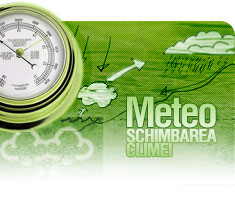https://cop23.unfccc.int/news/un-steps-up-action-to-make-urban-spaces-more-climate-resilient
The 9th World Urban Forum in Kuala Lumpur concluded this week with a call to use the new urban agenda as an accelerator to achieve the Sustainable Development Goals and support climate action.
According to the UN, the world's urban population is expected to grow by 2.5 billion by 2050, with over 90 per cent of this growth to take place in Africa, Asia, Latin America and the Caribbean.
This presents an unprecedented opportunity to re-define urban development, including investing in livable, low-carbon and resilient cities.
Experts at the meeting recognized the fact that climate change will exacerbate the vulnerability of human settlements to natural and man-made hazards globally. This will especially be the case in developing countries, coastal and delta regions, and Small Island Developing States.
Adapting to climate change in human settlements is critical to ensuring that human development is not jeopardized and that the world's growing population has the opportunity to thrive.
The Paris Agreement provides a framework for global climate action, engaging both national and local governments, including in least developed countries and secondary cities to take action.
As of today, over 2500 cities reported their commitments to both mitigation and adaptation on the Non-State Actor Zone for Climate Action (NAZCA) platform, showing that many cities are already taking climate action, including in Africa and Asia.
Countries can build resilience and enable adaptation in human settlements through national adaptation through the process to formulate and implement national adaptation plans (NAPs), including, linking national and local adaptation planning, and supporting local governments' role in planning and implementing adaptation in human settlements.
NAPs provide an opportunity to emphasize human settlements in national adaptation strategies, and foster further adaptation action by local governments in cities, towns and villages of all sizes.
One of the key findings of an upcoming report by UN Climate Change on Adaptation and human settlements will be that national governments have a crucial role in enabling subnational governments to plan and implement adaptation action, and in providing adequate resources to do so. This report will inform climate negotiations in May this year.
And the recently launched Cities and Regions Talanoa Dialogue provides further opportunities to advance and institutionalize multilevel governance on climate action, to ensure coordinated action across all levels of government.
So-called "Cities and Regions Talanoa Dialogues'' will be facilitated by ICLEI -Local Governments for Sustainability with Global Covenant of Mayors for Climate & Energy and UN-Habitat as special partners.



 Română
Română English
English


